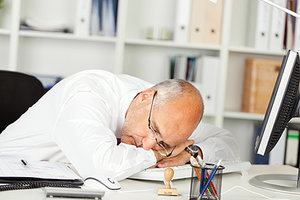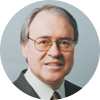I had a dream I wasn't getting enough sleep. It was a very realistic dream, even though I was probably slightly awake and not really deep dreaming. Most likely I had been dozing, caught in that twilight of sleep and wakefulness.
It happens. More often than not, I join the millions of Americans who don't get enough sleep. Are you one of us? According to a recent TV documentary by National Geographic, 40 percent of adults and 70 percent of teenagers get less than 7 hours of sleep a night. To paraphrase the show, being sleep-deprived can make you dull, fat and crazy. In other words, it's downright unhealthy.
Americans are not the only ones in the world who need to nap. In Japan, the average night's sleep is 5 hours, 45 minutes. A Norwegian study showed that suicides increase by a factor of two when one is among the 3 percent of the worst sleepers.
No wonder the topic of sleep comes up a lot in our offices. When a patient tells me they have trouble sleeping, the conversation usually goes in a few predictable directions. I wish I had a stock option in some memory-foam manufacturer for every time a patient has asked me to recommend a mattress or pillow. Pillows are especially confusing: "Dr. Hanks, what's better to have as pillow stuffing, hops or buckwheat?"
 My patients have educated me about sleep apnea, so I know a lot more about CPAP machines than I do about pap smears. I know a lot about the secret lives of snoring patients and the nocturnal lives of overactive bladders.
My patients have educated me about sleep apnea, so I know a lot more about CPAP machines than I do about pap smears. I know a lot about the secret lives of snoring patients and the nocturnal lives of overactive bladders.
When I bring up the topic of a noontime nap with other chiropractors, virtually all admit taking naps at some frequency. I remember attending a conference years ago, as a neophyte chiropractor, where the late Richard Yennie, DC, was one of the prominent speakers. He credited "The Nap" as one of his practice-management secrets. He got a standing ovation. DCs have torecharge as much as any other professionals.
Grunstein, et al., found it was not uncommon for judges to fall asleep during trials. This is a problem worth studying. If I were a defendant, I would prefer the attending judge be sober and have had a great night's rest.
During my career, when I have given testimony in personal-injury cases, it wasn't a sleeping judge I noticed, but sleeping jurors. Once, when I was a waiting witness in the court room, the judge asked a particular juror if he had heard the previous testimony, and if he needed a cup of coffee. The guy had been snoring, disrupting the proceedings. Needless to say, he was dismissed.
Another mark for sleepiness appears to be anesthesiologists. That's right, the people who put people to sleep can have sleeping problems. The American Society of Anesthesiologists polled its members and found that indeed, these specialists have a real problem staying awake during long surgeries. They sit watching monitors all day; it stands to reason that this would be challenging.
In one poll done in Finland, anesthesiologists there were found to have twice as many thoughts of suicide as other physicians. And a surgical nurse recently told me anesthesiologists at the hospital where she works are allowed to check their email during a surgery. (But what are they looking at, really?)
I digress; or maybe not. One of the most interesting causes of sleep deprivation is the "song stuck in my head." Again, I looked it up. Surprisingly, there are about a zillion pages on the Internet about this subject. I remember having the song "Little Deuce Coupe," by the Beach Boys, stuck in my head for about three weeks. While driving, I would hear this song whenever I wasn't really paying attention. I could hear the lyrics: "It's got a competition clutch, and a four-on-the-floor," etc., and wanted to get this tune out of my head at any cost. I was finally able to replace it with a Steely Dan tune, which also slowly faded away over time.
I thought this was only my problem, yet I now know I and about 100 million of my closest friends hear the Stubborn Songs. I actually found a website that will give directions to get the "song stuck in my head" out of my head for only $9.95! My solution is to hum a popular tune, like Pharrell's "Happy Song," until I can't stand it anymore. The old "stuck song" becomes a distant memory ... until the new one sneaks in.
I'm actually getting tired now. It's late and I've been writing for some time. And yet I need to finish this article by the deadline, so ... ZZZZ.
Click here for more information about John Hanks, DC.





